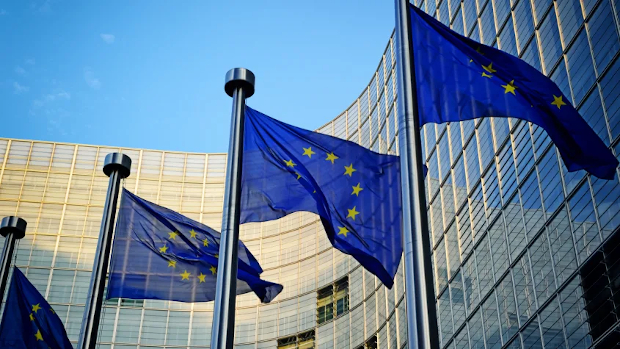
How Big Tech is reacting to the Digital Markets Act
Apple, Google parent Alphabet, Amazon, Meta Platforms, Microsoft, and TikTok owner ByteDance must now fully comply with the European Union’s (EU) new rules aimed to break up the control of a few big tech players in the digital market.
Under the Digital Markets Act (DMA), the six ‘Big Tech’ companies were designated “gatekeepers” in September of 2023 and granted six months to meet the requirements of the law or face fines of up to 10% of their annual worldwide turnover. The changes will affect users in the EU.
The European Commission recently reported that it received notifications from Booking Holdings (owner of Booking.com) and Elon Musk’s X (formerly Twitter) that their services may also meet the DMA gatekeeper threshold and therefore could be subject to further regulation. The Commission said it would take 45 working days to decide whether to classify the companies as gatekeepers after the notification on 1 March.
The EU said that companies operating a “so-called core platform service” with at least 45 million monthly users and 10,000 annual business users, as well as a significant impact on the market and a stable market position, qualify for consideration.
Apple
Apple announced changes to the App Store, Safari, and the iOS operating system on iPhones as well as Apple Pay ahead of the 6 March deadline. The changes to the company’s systems largely revolved around allowing third-party applications to interoperate on Apple systems.
The EU recently fined Apple nearly €1.8 billion for “abusive App store rules for music streaming providers” that the European Commission said violates EU antitrust laws. Apple said it intends to appeal the EU’s decision, which it claims bolsters the already dominant position of Swedish company Spotify.
Google rolled out changes for users and app developers affecting Google services including search, Google Chrome browser, and the Google Play app store, among other features.
These updates could make it easier to download third party apps, use other app stores, and access alternative billing options outside of Google Play. The changes will also make it more accessible for Google users to run external apps and services and protect user data.
Google’s changes to comply with the DMA have come under fire from several travel companies claiming they could reinforce Google’s leadership rather than make the digital marketplace more competitive.
Amazon
Amazon introduced several changes for EU users including requests to share personal information and data, bolstered ad transparency efforts, and new reports for advertisers.
The e-commerce giant previously made changes to its offering in the EU. In 2023, the company launched a separate cloud in Europe to comply with EU privacy standards.
Meta
Meta introduced changes to Facebook, Instagram, Messenger, and WhatsApp to allow users more choices on its platforms.
With the DMA-compliant changes, third-party messaging services will be able to interoperate with Messenger and WhatsApp.
Users in the EU will have the choice of whether to connect their accounts across platforms like Facebook, Instagram, Facebook Messenger, Facebook Marketplace, and Facebook Gaming. The users can also opt to use Facebook and Instagram ad-free through a paid subscription.
Microsoft
Microsoft announced changes to Windows and LinkedIn to comply with DMA requirements.
Updated versions of Windows 10 and Windows 11 are available for users in the EU to download. The company reported that it will roll out the automatic installation of the update so that all affected users will have a DMA-compliant version by early April.
The changes to Windows included a redesign so users can uninstall the Edge browser and the Bing search function, and enabled third-party search engines to operate in Windows systems. Users will now have the opportunity to decide whether to connect accounts across Microsoft services rather than being automatically signed in.
Microsoft reported that it added more robust data handling standards and revamped the data content forms that Windows users see.
LinkedIn users in the EU will be able to decide whether to connect their core LinkedIn professional networking experience across offerings for jobs, marketing solutions, and LinkedIn Learning, as well as additional access to data collected by the platform.
Bytedance/TikTok
TikTok reported improvements to the download data feature for users and developers as well as providing business accounts with additional access to data as a part of changes the platform made to comply with the EU rules.
The platform, owned by Chinese company ByteDance, has been working to appeal its gatekeeper designation since November of 2023.
The company said that while it “fully support[s] the principles of the DMA, which aims to better enable challengers to compete with incumbent players,” it holds “the belief that [its] designation risks undermining the DMA’s own stated goal by protecting actual gatekeepers from newer competitors like TikTok.”
News Wires








Subscribers 0
Fans 0
Followers 0
Followers